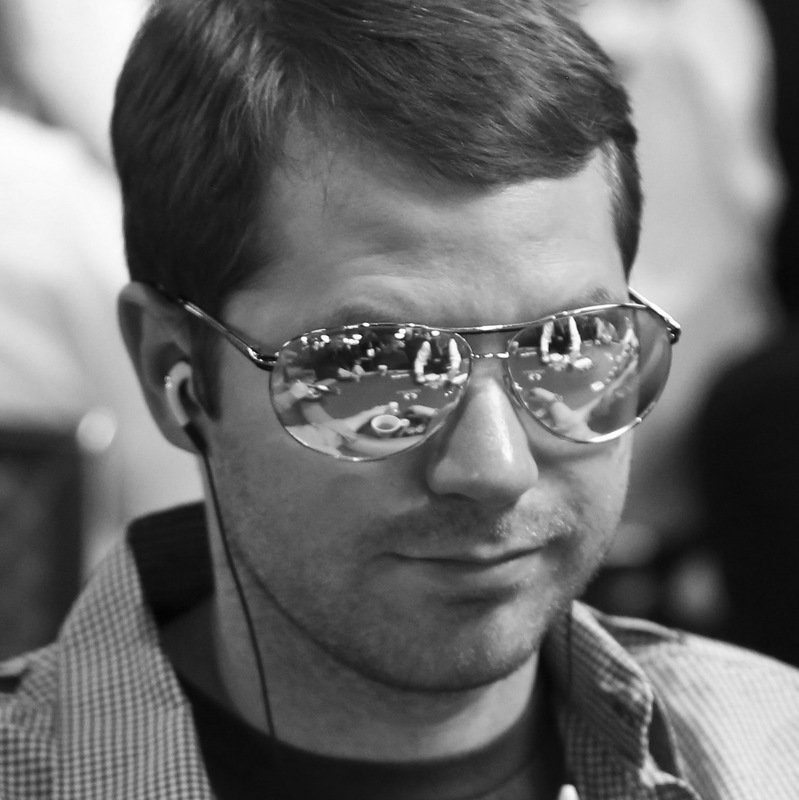






A Decent Spot To Min-Raise?by Jonathan Little | Published: May 10, 2017 |
|
|
I was recently forwarded a hand by one of my students that demonstrates an error that many small stakes players make on a regular basis (min-raising after the flop). In a $1-$2-$5 game (there are three blinds), a player in second position raised to $15 out of his $500 starting stack. The button also called. Our Hero elected to call with 9 9
9 from the small blind, as did an aggressive player in the big blind.
from the small blind, as did an aggressive player in the big blind.
I like Hero’s preflop call, although if effective stacks were shorter, going all-in could easily be the best option. As long as Hero expects an all-in to make the initial raiser fold a large amount of the time, if the stacks were perhaps $200 or smaller, going all-in would be a reasonable option because Hero will often win the pot immediately before the flop and when he gets called, 9-9 will have reasonable equity. As stacks become deeper, three-betting decent middle pairs from out of position in a multi-way pot is usually not ideal because they play well postflop. You always know on the flop if you have a strong hand (when you make a set) or a marginal/junky hand (when you don’t make a set). Having clear decisions after the flop should lead you to want to see the flop.
The flop came J 9
9 2
2 . Hero decided to check with his set.
. Hero decided to check with his set.
I approve of Hero’s check. Especially on a somewhat coordinated board, it is safe to assume someone will bet if you check this flop. While it is certainly a bad result if the flop checks through because most opponents will have at least some equity, I still think checking is best with Hero’s entire range. If Hero wanted to develop a leading range, middle set is a great candidate (as are many draws) because it is somewhat easy for someone yet to act to be unwilling to fold top pair or a decent draw.
The aggressive player in the third blind led for $35 out of his $165 remaining stack into the $61 pot. Everyone folded back around Hero, who check/min-raised to $70.
In general, I am strongly against min-raising when facing competent opponents. Take a second and think about what your bet offers your opponent. You are giving him 4:1 pot odds from in position, which essentially says, “I think you are in such awful shape that you cannot win even if I give you position and great pot odds.” If you tell your opponent that, he should only continue with premium made hands and strong draws. Notice that even if your opponent has a hand like A-J, he should consider folding, assuming you rarely min-raise (which is often the case in small stakes games).
I do not like the min-raising in this situation with premium made hands because the opponent is getting an excellent price to call with his draws, which should make up a decent portion of a flop leader’s range (remember, he bet into the preflop raiser). So, if he has a marginal made hand (another likely leading hand), he has an easy fold and if he has a strong draw, he has an easy call. By check/min-raising, Hero essentially forces his opponent to play perfectly, which is the exact opposite of what you want to do. In this spot, I would have gone all-in to get called by the opponent’s strong and decent made hands that are drawing nearly dead while also pricing out the draws.
The aggressive player pushed all-in for $165 total and Hero called.
Clearly Hero is not looking to fold.
The opponent lost with J 4
4 , top pair with no kicker.
, top pair with no kicker.
While check/min-raising does not make sense against competent players, perhaps Hero knew that this specific player is not capable of folding his marginal made hands on a draw-heavy board to a min-raise, making the assumption that Hero must have a draw to play his hand in this aggressive manner. Perhaps Hero knows that the opponent will not call an all-in with his marginal made hands but will rarely fold to a smaller raise. That said, I think most players will view an all-in as equally (or perhaps more) weak than a min-raise because an all-in creates fold equity.
Clearly a lot of knowledge about the opponent is necessary before min-raising becomes a consideration and in general, I am not egotistical enough to think that I have such perfect reads on my opponents. While this play clearly worked out well for Hero, I still think check/pushing all-in will work out better in the long run. ♠
 Jonathan Little is a two-time WPT champion with more than $6 million in tournament winnings. Each week, he posts an educational blog and podcast at JonathanLittlePoker.com, where you can get a FREE poker training video that details five things you must master if you want to win at tournament poker. You can also sign up for his FREE Excelling at No Limit Hold’em webinars at HoldemBook.com/signup.
Jonathan Little is a two-time WPT champion with more than $6 million in tournament winnings. Each week, he posts an educational blog and podcast at JonathanLittlePoker.com, where you can get a FREE poker training video that details five things you must master if you want to win at tournament poker. You can also sign up for his FREE Excelling at No Limit Hold’em webinars at HoldemBook.com/signup.
Features
The Inside Straight
Strategies & Analysis